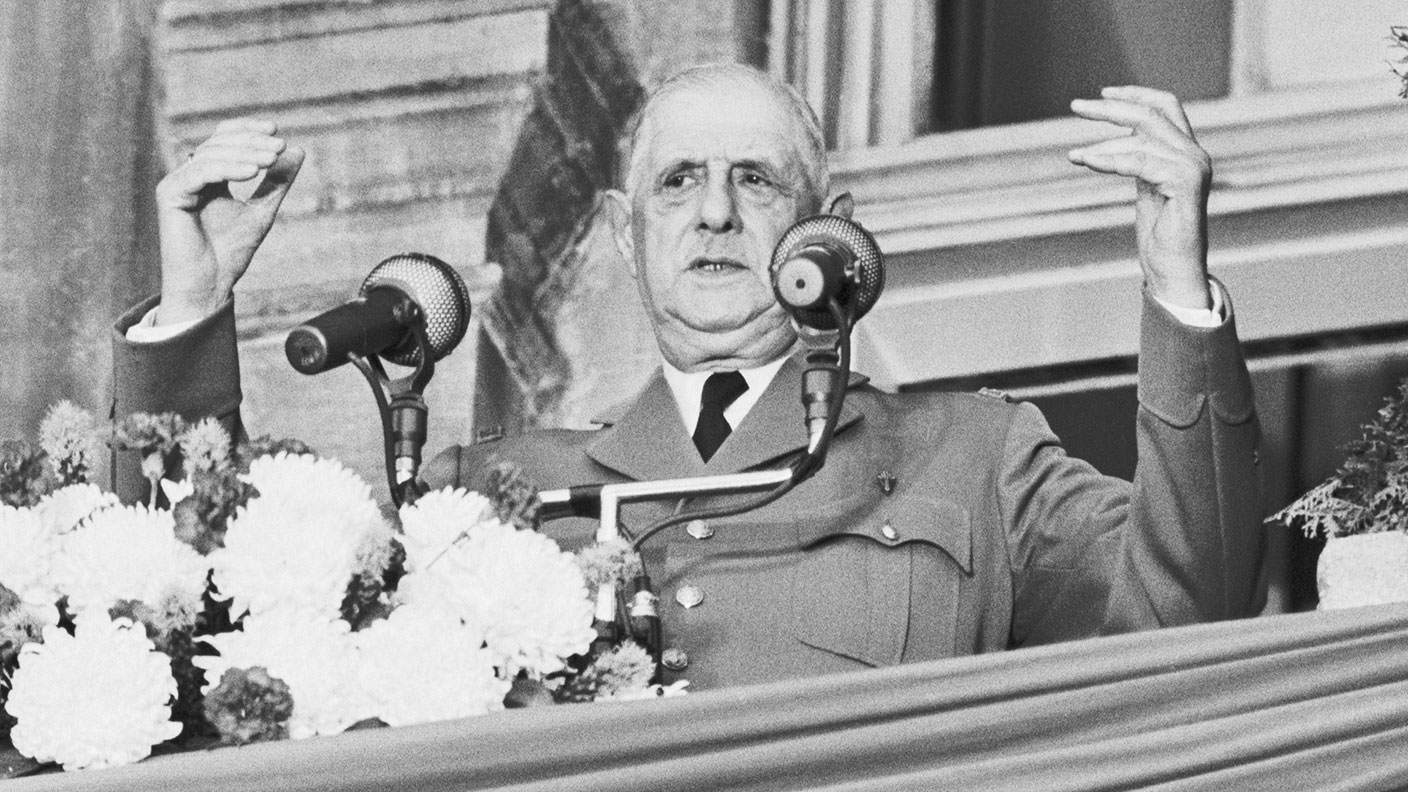24 July 1967: De Gaulle speaks up for Quebec's independence
French president Charles de Gaulle shocked Canada, on this day in 1967, when he declared to a welcoming crowd “Vive le Quebec libre”.


Get the latest financial news, insights and expert analysis from our award-winning MoneyWeek team, to help you understand what really matters when it comes to your finances.
You are now subscribed
Your newsletter sign-up was successful
Want to add more newsletters?
Quebec, originally a French colony, was ceded to the British in the Treaty of Paris of 1763. The Quebec Act of 1774 recognised the French language, and religious rights for Catholics. But in 1838, a pro-independence uprising forced Britain to turn its North American colonies into the Province of Canada in 1840.
This evolved into the semi-autonomous Dominion of Canada in 1867, made up of several regions, including Quebec, which had a degree of regional autonomy and cultural distinctiveness within Canada.
In the late 1950s this arrangement broke down due to concerns that Quebec was becoming "Anglicised". In 1963 the terrorist Front de Libration du Quebec (FLQ) carried out a series of bombings.
Try 6 free issues of MoneyWeek today
Get unparalleled financial insight, analysis and expert opinion you can profit from.

Sign up to Money Morning
Don't miss the latest investment and personal finances news, market analysis, plus money-saving tips with our free twice-daily newsletter
Don't miss the latest investment and personal finances news, market analysis, plus money-saving tips with our free twice-daily newsletter
However, the independence movement did not take off until Charles de Gaulle, then French president, shocked Canada in July 1967 by declaring "Vive le Quebec libre" to a welcoming crowd, while on a state visit to Canada. Protests forced him to cut short his trip, but the symbolic importance of the French president and war hero endorsing separation delivered a huge boost to the pro-independence movement.
In 1968 the pro-independence Parti Quebecois was formed, gaining regional power by 1976. It passed laws mandating the use of French and forced a referendum on negotiating independence. While it was rejected by 60% of voters, a second referendum in 1995 came within 1% of gaining a majority.
The language laws have become increasingly strict over the years, culminating in a family being fined C$3,000 (£1,500) last year for writing in English on boxes of household goods.
Get the latest financial news, insights and expert analysis from our award-winning MoneyWeek team, to help you understand what really matters when it comes to your finances.

-
 Do you face ‘double whammy’ inheritance tax blow? How to lessen the impact
Do you face ‘double whammy’ inheritance tax blow? How to lessen the impactFrozen tax thresholds and pensions falling within the scope of inheritance tax will drag thousands more estates into losing their residence nil-rate band, analysis suggests
-
 Has the market misjudged Relx?
Has the market misjudged Relx?Relx shares fell on fears that AI was about to eat its lunch, but the firm remains well placed to thrive
-
 31 August 1957: the Federation of Malaya declares independence from the UK
31 August 1957: the Federation of Malaya declares independence from the UKFeatures On this day in 1957, after ten years of preparation, the Federation of Malaya became an independent nation.
-
 13 April 1960: the first satellite navigation system is launched
13 April 1960: the first satellite navigation system is launchedFeatures On this day in 1960, Nasa sent the Transit 1B satellite into orbit to provide positioning for the US Navy’s fleet of Polaris ballistic missile submarines.
-
 9 April 1838: National Gallery opens in Trafalgar Square
9 April 1838: National Gallery opens in Trafalgar SquareFeatures On this day in 1838, William Wilkins’ new National Gallery building in Trafalgar Square opened to the public.
-
3 March 1962: British Antarctic Territory is created
Features On this day in 1962, Britain formed the British Antarctic Territory administered from the Falkland Islands.
-
10 March 2000: the dotcom bubble peaks
Features Tech mania fanned by the dawning of the internet age inflated the dotcom bubble to maximum extent, on this day in 2000.
-
9 March 1776: Adam Smith publishes 'The Wealth of Nations'
Features On this day in 1776, Adam Smith, the “father of modern economics”, published his hugely influential book The Wealth of Nations.
-
 8 March 1817: the New York Stock Exchange is formed
8 March 1817: the New York Stock Exchange is formedFeatures On this day in 1817, a group of brokers moved out of a New York coffee house to form what would become the biggest stock exchange in the world.
-
7 March 1969: Queen Elizabeth II officially opens the Victoria Line
Features On this day in 1969, Queen Elizabeth II took only her second trip on the tube to officially open the underground’s newest line – the Victoria Line.